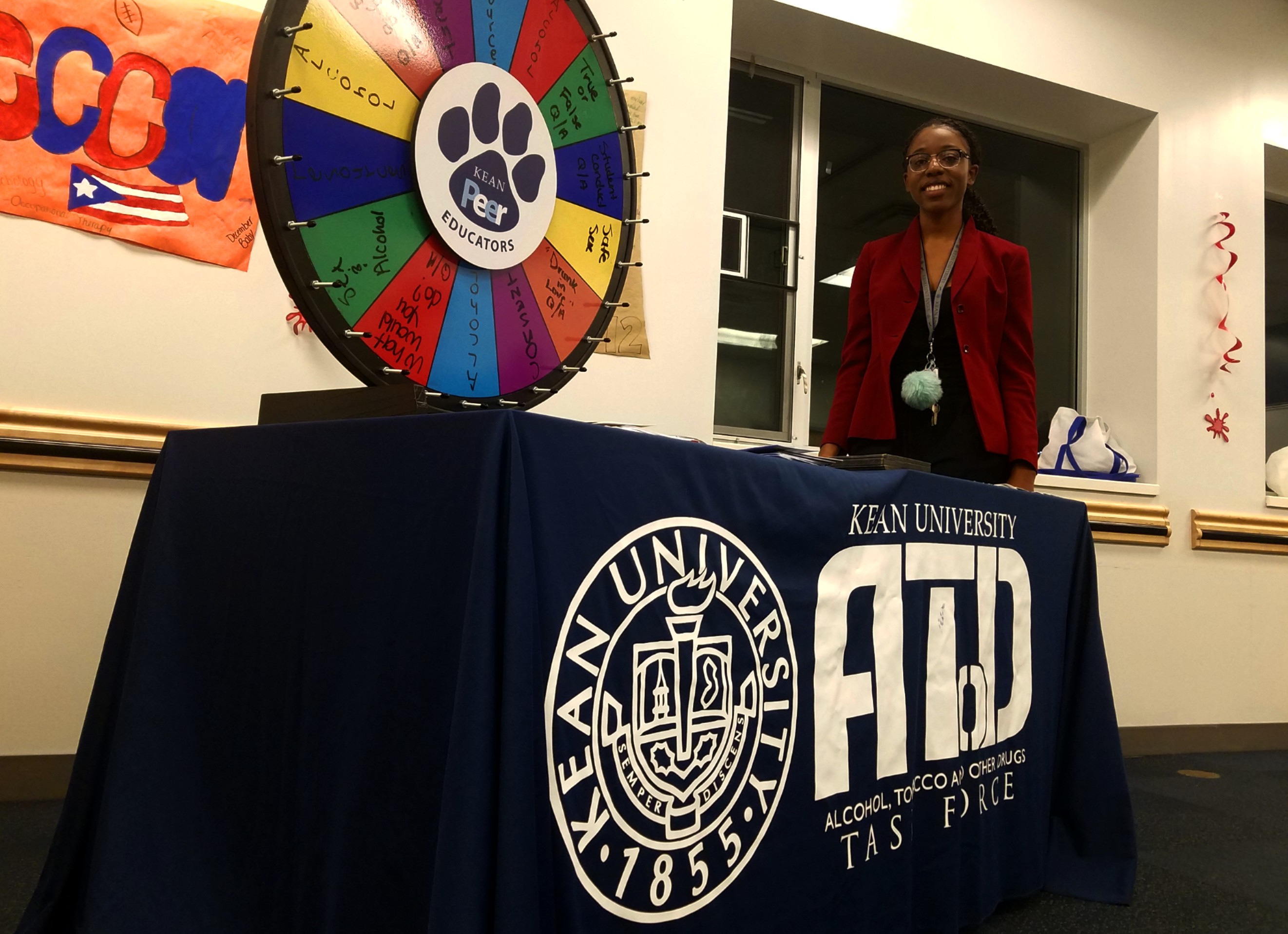By Tasha Dowbachuk | Published by Dec. 6, 2018
Residents of Kean University attended the event, Drunk In Love, on Nov. 8, 2018 to learn about sexual consent, alcohol and drug abuse through an interactive presentation and activities.
The event was hosted by Resident Assistant (R.A) Sabine Alexis, along with the Office of Community Standards members, Lillie Barber and Myrian Tellez.
“Residents who have been away from home for the first time are so eager to go out and party but normally don’t know how to be safe,” said Sabine Alexis.
According to the anti-sexual violence organization, RAINN, consent is “an agreement between participants to engage in sexual activity.”
According to the presentation, the confusion arises when two individuals are unsure of obtaining each others consent, especially when alcohol or drugs are involved. The important factor behind this, is knowing that consent is all about communication between partners.
The most vital piece of information that was stated within the presentation is to understand is that sex under the influence is not consensual sex. Also, if the person says “no” to engaging in sexual intercourse, that strictly means “no.”
According to N.J. state police, Criminal Sexual Contact is legally defined as “intentional, non-consensual touching by the victim or actor, either directly or through clothing, of a victim’s or actor’s sexual organs, genital area, anal area, inner thigh, groin, buttock or breast, for the purpose of degrading or humiliating the victim or sexually arousing or sexually gratifying the actor” (NJSA 2C:14-3).
Residents received kits and pamphlets for safe sex and information upon sexual assault, as well as experiencing impaired vision with the use of beer goggles.
Beer goggles was created by Innocorp Ltd., which is a tool that alters an individual vision to imitate the physical effects of alcohol impairment. According to Innocorp Ltd., the purpose behind this tool is to inform and educate those of what it is like to operate under the influence, while also emphasizing the cognitive functioning of an impaired individual.
“Now that they know that there are resources, like the one inside of the pamphlets or the blue light system around campus, it can give them a sense of safety and protection,” Alexis continued.

You must be logged in to post a comment.